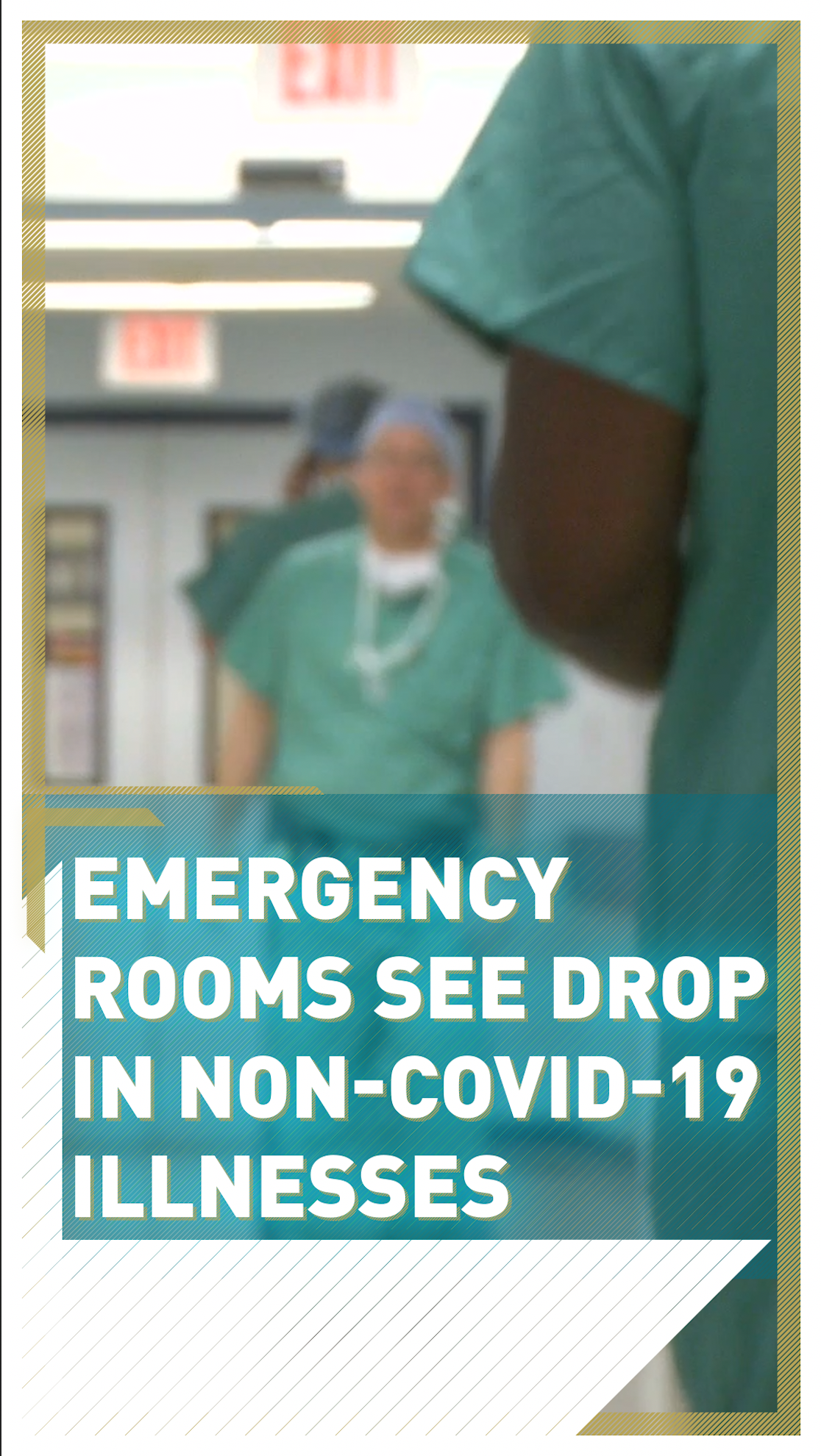01:02

Wash your hands; stay at home, especially if you have a cold or a fever; and keep two meters away from other people if you do have to go out. The measures designed to slow the spread of the coronavirus are unprecedented – but they could also be having quite an impact on reducing other communicable illnesses.

A coronavirus warning poster on a park gate next to the UK Parliament. /AFP
A coronavirus warning poster on a park gate next to the UK Parliament. /AFP
First the disclaimer - things like seasonal flu and food poisoning and norovirus cases vary each year in their number and in when they peak and trough, so it's too early to come to any firm conclusion between cause and effect.
But looking at the most recent statistics from Public Health England on hospital admissions for, or notifications of, these illnesses, there has been a striking downward curve in the past few weeks, since the UK began to bring in its self-isolation rules.
Norovirus - the winter vomiting bug
In the current winter season, cases of norovirus in England and Wales are 16 percent higher than the averaged figure for the same period in the preceding five years. However, there has been a sharp drop in the past few weeks: in the first fortnight of March, there was a 22 percent drop on the number of reported cases compared with the average figure of those two weeks in the previous five years, according to figures from Public Health England's Summary of surveillance of norovirus and rotavirus.

Source: Public Health England national norovirus and rotavirus report
Source: Public Health England national norovirus and rotavirus report
If there is a link between measures taken to stop the spread of the coronavirus and norovirus, it is not surprising. The latter is a vomiting bug and according to the UK's National Health Service website it can be spread by close contact with someone who has it, by touching surfaces they have touched and then touching your face. Staying at home for two days and washing your hands frequently with soap and water is recommended to stop its spread. So basically most of Europe is currently in a lockdown which logically should see cases plummet.
What about general emergency department admissions?
The figures here are even more striking than for norovirus and suggests that there has been a welcome drop in the numbers of people attending emergency departments in England and Wales as the measures to contain coronavirus, and the warnings about it, have been issued.
According to Public Health England's latest Emergency Department Syndromic Surveillance System report there has been a dramatic drop in admissions at emergency departments in the week since 16 March - the day prime minister Boris Johnson told British people to work from home if they could and to self-isolate for 14 days if someone in their household has had a fever or develops a new persistent cough.
Date and total attendances:
16/03/2020 22,360
17/03/2020 18,736
18/03/2020 17,732
19/03/2020 16,166
20/03/2020 15,968
21/03/2020 15,577
22/03/2020 13,817
As you can see from this graph - the decline in emergency admissions during that week was across all ages:

Source: Public Health England emergency department syndromic surveillance system
Source: Public Health England emergency department syndromic surveillance system
A dramatic drop in gastroenteritis cases
Cases of gastroenteritis have halved since 8 March and are now well below their usual figures. With norovirus being one of the main subsections of gastroenteritis-prompted visits to emergency departments, the fall in the overall figure is again not a surprise. But as you can see from this graph the impact of the coronavirus measures appears to be clear:
There has also been a fall in cardiac-related admissions
There has also been a sharp drop in March in the number of people attending emergency departments with heart (cardiac) issues.
But... a sign of the coronavirus arrival?
The one big exception in the emergency department figures has been admissions for pneumonia-like conditions, which are above the trend level. And as we know, pneumonia is one of the common conditions among people who test positive for COVID-19:
As with the disclaimer at the top of this article, we don't know yet how this is all going to play out and whether these trends will continue during a prolonged lockdown. We also don't know for sure why these trends have happened.
We can surmise that it's a result of better hygiene and other measures to prevent coronavirus, but it might also be the result of people not wanting to attend emergency departments when they would have attended previously. But whatever the reason, given the pressures being put on the healthcare system in the UK and elsewhere from the spread of coronavirus cases, these falls will be widely welcomed.
Sign up here to get the COVID-19 Europe bulletin sent directly to your inbox